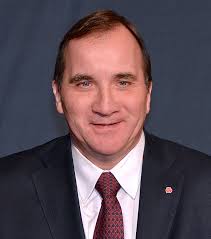
The following thoughts on money, markets, capitalism and the future of democratic politics were prepared for the ‘Come Clean’ public forum, to be held by John Keane, professor of Politics, University of Sydney in the New South Wales Parliament on June 2nd 2016. Sponsored by the John Cain Foundation, the forum aims to examine the money governments receive from donations and other sources, and what policy changes are necessary for ensuring ‘timely, full disclosure of all political donations’. «The Cenversation» in Sydneyreprintingprofesso John Keanses thougts, rwites that the ‘dirty money’ problem facing democracies everywhere is actually much bigger and mthreatening than matters of campaign donations.A Decade AgA decade ago, most people interested in politics associated the words social democracy with business-friendly governments, lower taxes, economic growth, high wages and low unemployment. Social democracy seemed to be the guardian of a new Gilded Age. It meant good times, a positive Third Way between capitalism and socialism. It represented a progressive vision of market reforms, new publicmanagement and rising consumption, a shift from savings capitalism to a capitalism of easy lending, thtriumph of a new era of ‘privatised Keynesianism’ led by the governments of David Lange, Bill Clinton, Tony Blair and Gerhard Schröder.
Merkel and Løfven left
In most countries of the world, the fortunes of social democracy have since slipped or disappeared, well beyond the political horizons of the present. Yes, generalisations are risky; the troubles of social democracy are spread unevenly. There are still honest politicians who call themselves social democrats and stand for the old principles. And there are instances where social democratic parties hang on and hang around by joining grand coalitions: the few cases include the Große Koalition in Germany and the ‘red-green’ government led by Stefan Löfven in Sweden. Elsewhere, especially in countries now suffering the chill winds of austerity and economic stagnation and disaffection with cartel parties, social democrats look so lost and tired and broke that they are even forced to sell off or down-size their headquarters, which was the fate that befell the Social Democratic Party of Japan in 2013.
Damaged Reputation
The reputation of social democracy has since been damaged. The phrase nowadays connotes things much less positive: career politicians,scripted speeches, intellectual emptiness, declining party membership, discredited defenders of ‘too big to fail’ banks and austerity like Felipe González and François Hollande. And crushing electoral defeat, of the kind recently suffered (at the hands of the far-right populist Norbert Hofer) in the first round of presidential elections by the Austrian Social Democratic Party, whose ancestor (SDAPÖ) was once among the most powerful, dynamic and forward-thinking party machines.
Economic Unequality
Consider the case of the United States, the richest capitalist market economy on the face of the earth: 1per cent of its households own 38 percent of the national wealth, while the bottom 80 percent of households own only 17 per cent of national wealth. Or France, where (according to Pierre Rosanvallon’s The Society of Equals) the average disposable income (after transfers and taxes) of the wealthiest 0.01 percent of the population now stands at seventy-five times that of the bottom 90 percent. Or Britain, where at the end of three decades of deregulated growth, 30 per cent of children live in poverty and a majority of middle class citizens reckon themselves vulnerable to unemployment, and to the humiliation joblessness brings. Or Australia, where the level of income inequality is now above the OECD average, the top 10 per cent of wealth holders own 45 percent of all wealth and the top 20 percent wealth group has 70 times more wealth than a person from the bottom 20 percent.
What is Socialism?
There was always muddle over the meaning of the ‘social’ in social democracy; and there were frequent brawls about whether and how the taming of markets, which many called ‘socialism’, could be achieved. The great moments of high drama, strife and luscious irony need not detain us here. They form part of a recorded history that includes the courageous struggles of the downtrodden to form co-operatives,friendly societies, free trade unions, social democratic parties and the fractious splits that gave birth to anarchism and Bolshevism. The history of social democracy includes outbursts of nationalism and xenophobia and (in Sweden) experiments with eugenics. It also includes the re-launch of social democratic parties at the Frankfurt Declaration of the Socialist International (1951), efforts to nationalise railways and heavy industry, and to socialise the provision of health care and formal education for all citizens. The history of social democracy also embraces big and bold thinking, romantic talk of the need to abolish alienation, to respect what Paul Lafargue called the right to be lazy, and the vision projected by his father-in-law Karl Marx of a post-capitalist society, in which women and men, freed from the shackles of the market, went hunting in the morning, fished in the afternoon and, after a good dinner, engaged others in frank political discussion.
Run out of Stream
A strange feature of the history of social democracy is just how distant and detached these details now feel. Its parties have run out of steam; their loss of organising energy and political vision is palpable. Collaborators with finance capitalism then apologists of austerity, their Third Way has turned out to be a dead end. Gone are the flags, historic speeches and bouquets of red roses. Party leader intellectuals of the calibre of Eduard Bernstein (1850 – 1932), Rosa Luxemburg (1871 -1919), Karl Renner (1870 – 1950) and Rudolf Hilferding (1877 – 1941) and C.A.R. Crosland (1918 – 1977) are a thing of the past. Today’s party leaders who still dare to call themselves social democrats are by comparison intellectual pygmies. Loud calls for greater equality, social justice and public service have faded, into a choking silence. Positive references to the Keynesian welfare state have disappeared. As if to prove that social democracy was just a brief interlude between capitalism and more capitalism, there is much talk of ‘renewed growth’ and ‘competition’, public-private partnerships, ‘stakeholders’ and ‘business partners’. Within the dwindling ranks of committed social democrats, few now call themselves socialists (Bernie Sanders and Jeremy Corbyn are exceptions), or even social democrats. Most are party faithful, machine operators surrounded by
media advisers, connoisseurs of governmental power geared to free markets. Few make noise about tax avoidance by big business and the rich, the decay of public services or the weakening of trade unions. All of them, usually without knowing it, are blind apologists of the drift towards a new form of finance capitalism protected by what I have elsewhere called ‘post-democratic banking states’ that have lost control over money supply (in countries such as Britain and Australia, for instance, over 95% of the ‘broad money’ supply is now in the hands of private banks and credit institutions).
Complicated Answers
The whole trend prompts two fundamental questions: Why did it happen? Was it necessary? The answers are naturally complicated. The trend was overdetermined by multiple intersecting forces, yet one thing is clear: social democracy did not lose ground to market economics simply because of opportunism, the decline of the labour movement or the lack of political fortitude. There was more than enough gutlessness, certainly. But social democrats were democrats. In choosing to tramp the parliamentary road, they understandably cut a path between two devilish options: communism and anarcho-syndicalism. Social democrats foresaw that the 19th-century utopia of abolishing
markets would prove disastrous, either because it required full state takeover of economic life (that was von Hayek’s prediction in The Road to Serfdom [1944]) or because it supposed, in equally fanciful terms, that a united working class was capable of replacing states and markets with social harmony through autogestion.
Lack of Orginallity
Many thinking social democrats reply by emphasising the flexibility of their creed, the capacity of their originally 19th-century standpoint to adapt to 21st-century circumstances. They are adamant that it is much too early to bid farewell to social democracy; they reject the charge that it is a worn-out ideology whose moments of triumph belong to the past. These social democrats admit that the goal of building social solidarity among citizens through state action has been damaged by the fetish of free markets and fudged agendas designed to win votes
from business, the rich and right-wing competitors. They sense the exhaustion of the old slogan Eight Hours Work, Eight Hours Recreation, Eight Hours Rest. They recognise that the spirit of social democracy was once infused with the vibrant vocabulary of other moral traditions, such as the Christian distaste for materialism and extremes of wealth. They admit to being impressed by the media-savvy initiatives of civic networks such as Greenpeace, M-15, Amnesty International and the International Consortium of Investigative Journalists, whose actions aim to put a stop to the violence of states, armies and gangs, but also to corporate misconduct and market injustices in cross-border settings.
They Look Backwards
Other social democrats, the distinguished historian Jürgen Kocka among them, engage in what scholars have called Rettendekritik: they look backwards, to learn from the past, to retrieve its ‘wish images’ (Wunschbilder) to gain inspiration for dealing politically with the new problems of the present. They are sure that the old topic of capitalism and democracy deserves to be revived. Kocka warns that contemporary ‘financialised’ capitalism is ‘becoming more and more market radical, more mobile, unsteady and breathless’. His conclusion is striking: ‘capitalism is not democratic and democracy not capitalistic’. Not all of these thinking social democrats are sympathetic to the greening of politics. In the German capitalism and democracy debate, for instance, Wolfgang Merkel is among those who who are insisting that ‘post-material progressivism’ centred on issues such as ‘gender equality, ecology, minority and gay rights’ have lulled social democrats into complacency about questions of class. Other social democrats see things differently. Their rethinking of the parameters of traditional social democracy leads them leftwards, towards the realisation that green movements, intellectuals and parties are potentially poised to wage the same struggle against market fundamentalism that social democracy began over a century and a half ago.
Can Red and Green be Mixed ?
How viable is their hope that red and green can be mixed? Presuming that red-green co-operation is possible, can the result be more than bland shades of neutral brown? Might the old and new be combined into a powerful force for democratic equality against the power of money and markets run by the rich and powerful? Time will tell whether the proposed metamorphosis can happen successfully. As things stand, only one thing can safely be said. If the red-to-green metamorphosis happened then it would confirm an an old political axiom famously outlined by William Morris (1834 – 1896): when people fight for just causes, the battles and wars they lose sometimes inspire others to carry on their fight, this time with new and improved means, under an entirely different name, in much-changed circumstances. Nordic News editor has shortened theessay without changing professor John Keanes meaning. He is a professor of Politics at the University of Sydney.





This is a terrific essay isn’t it I love a good vocabulary expanding excuse to hit various dictionaries – autogestion – wuntschbilder -rettendeckritik ! We need more words that’s for sure. We need more words for the different kinds of love and we need more words for the different kinds of health and wellbeing and our relationship with the environment. People are never so easy to manipulate than when they’re tongue tied
and lost for the right words, writes Peter Wilkin as a comment. This artice is published in the Australian australian academic forum «The
Conversation».